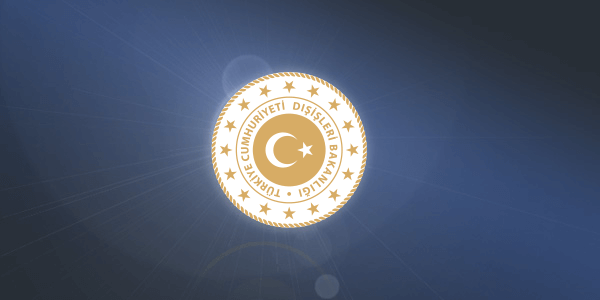- Yeminli Tercümanlarımız / Accredited Sworn Translators Turkish Embassy In New Delhi 03.05.2024
- IMPORTANT ANNOUNCEMENT ABOUT THE INDIAN/NEPALESE PASSANGERS TRAVELING TO MEXICO, PANAMA, COLOMBIA, VENEZUELA VIA İSTANBUL AIRPORT Turkish Embassy In New Delhi 05.04.2024
- E-visa of the Republic of Türkiye- Turkish Embassy In New Delhi 01.03.2024
- How to Apply Sticker Visa & General Information on Travel to Türkiye Turkish Embassy In New Delhi 03.08.2021
- No: 38, 28 February 2026, Regarding the Recent Developments in Our Region Republic Of Türkiye Ministry Of Foreign Affairs 28.02.2026
- No: 39, 28 February 2026, Regarding the Plane Crash in Bolivia Republic Of Türkiye Ministry Of Foreign Affairs 28.02.2026
- No: 36, 26 February 2026, Regarding the 34th Anniversary of the Khojaly Massacre Republic Of Türkiye Ministry Of Foreign Affairs 26.02.2026
- No: 37, 26 February 2026, Regarding the Natural Disasters in Brazil Republic Of Türkiye Ministry Of Foreign Affairs 26.02.2026

Monday - Friday
9:30 - 13:00 / 14:00 - 17:30
(
For all queries on visa and other consular affairs visit Homepage
Send query not found on Homepage to consulate.newdelhi@mfa.gov.tr
Consular Section hours: 09:00-12:00 and 14:00-17:00
The Embassy is next to National Railway Museum.
Holidays 2026
| 1/1/2026 | 1/1/2026 | New Year's Day |
| 1/26/2026 | 1/26/2026 | Republic Day |
| 3/4/2026 | 3/4/2026 | Holi |
| 3/20/2026 | 3/20/2026 | Id-ul-Fitr |
| 3/26/2026 | 3/26/2026 | Ram Navami |
| 3/31/2026 | 3/31/2026 | Mahavir Jayanti |
| 4/3/2026 | 4/3/2026 | Good Friday |
| 5/1/2026 | 5/1/2026 | Budha Purnima |
| 5/27/2026 | 5/27/2026 | Id-ul-Zuha (Bakrid) |
| 6/26/2026 | 6/26/2026 | Muharram |
| 8/26/2026 | 8/26/2026 | Milad-un Nabi (Birthday of Prophet Mohammad) |
| 8/28/2026 | 8/28/2026 | Raksha Bandhan |
| 9/4/2026 | 9/4/2026 | Janmashtami |
| 9/14/2026 | 9/14/2026 | Ganesh Chaturthi |
| 10/2/2026 | 10/2/2026 | Mahatma Gandhi's Birthday |
| 10/20/2026 | 10/20/2026 | Düssehra |
| 10/29/2026 | 10/29/2026 | Republic Day of Türkiye |
| 11/9/2026 | 11/9/2026 | Govardhan Puja |
| 11/11/2026 | 11/11/2026 | Bhai Duj |
| 11/24/2026 | 11/24/2026 | Guru Nanak's Birthday |
| 12/25/2026 | 12/25/2026 | Christmas Day |
+ 90 312 292 29 29






 INVEST IN TÜRKİYE
INVEST IN TÜRKİYE